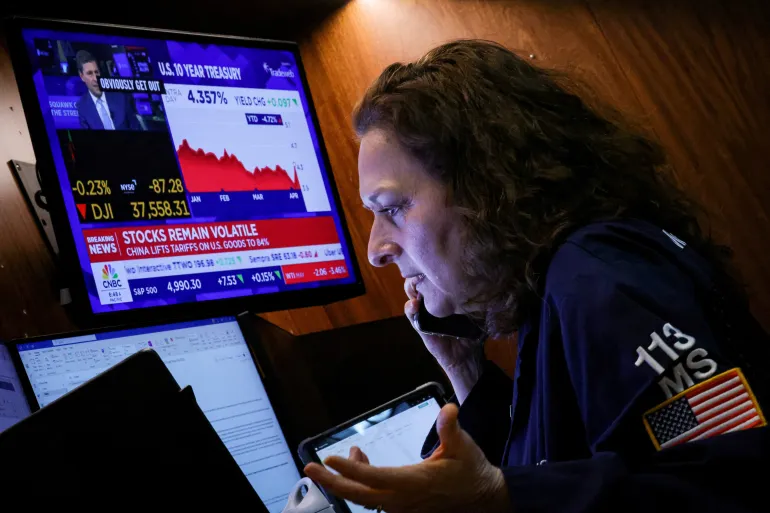
In his first 100 days back in office, President Donald Trump has repeatedly praised the strength of the US economy. But the data—and sentiment on the ground—tells a different story.
“We had the greatest economy in the history of our country,” Trump claimed on April 17. He projected an even stronger performance in his current term. However, early indicators are casting doubt on that vision.
Jobs and Inflation Look Good – For Now
Employment has risen by 345,000 since January, and the unemployment rate sits at a relatively low 4.2%. Inflation has dipped from 3.0% in January to 2.4% in March—promising signs on the surface.
But economists and surveys suggest these “hard data” points are lagging indicators, while “soft data” such as consumer confidence and business expectations are already flashing red.
Confidence Crashes Across the Board
- University of Michigan Consumer Sentiment dropped to 52.2 in April—down 29% since December and among the lowest points of the Biden administration.
- Conference Board Index has fallen for four straight months.
- Gallup poll shows 53% of Americans say their finances are worsening—worse than the Great Recession’s peak of 49%.
Even small businesses, once seen as core Trump supporters, are expressing doubt. The NFIB Small Business Optimism Index has declined over 7% since December 2024.
Trump’s Tariffs Fuel Inflation Fears
Key inflation expectations are rising:
- Consumers now expect 6.5% inflation over the next year, up from 2.8% in December.
- The Atlanta Fed found 46% of businesses expect “significant” price hikes.
- Philadelphia Fed surveys show a growing share of manufacturers are paying more for goods.
Economic Forecasts Signal Recession
The Atlanta Fed’s GDPNow model projects a 2.5% contraction in Q1 2025—its first negative forecast since 2022. Recession probability estimates:
- J.P. Morgan: 60%
- Goldman Sachs: 45%
- IMF: 37%
Markets Respond with Historic Decline
The S&P 500 has fallen:
- 18.9% from its February 19 peak to April 8
- 8.7% since Trump’s January inauguration
- 10.1% since February
This marks the worst April for the stock market since 1932, during the Great Depression. Investor sentiment has also soured; 56% of individual investors are now bearish—up from 39% in November.
Tariffs and Deportations Hit Small Businesses
David Dennison, head of the Original Pancake House chain, reports over 20% price increases on key food items due to tariffs and fears labor shortages from Trump’s deportation policies.
Meanwhile, Jax Ward, owner of the Crazy Squirrel Game Store in Fresno, says tariffs are threatening the board game supply chain. Some publishers have canceled releases or left goods in China due to soaring import costs.
“Boardgame sales used to be recession-proof,” Ward said. “We’ll see if they still are.”
Conclusion: Economy Faces Storm Clouds Ahead
Despite positive job and inflation figures, growing anxiety among consumers, businesses, and investors—driven by Trump’s tariff policies and unpredictable governance—is casting a long shadow over the US economy in 2025. Analysts warn that a downturn could become self-reinforcing if spending and investment begin to fall.






